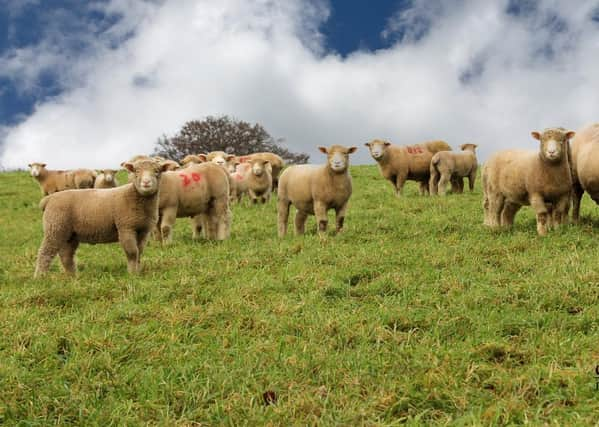Out of season lambing gives Dorset the ‘diamond edge’


Having this ability brings an array of benefits. Among many, resilience to volatility is extremely advantageous as breeders can have lambs finished at different times of the year thus spreading the risk of price fluctuations and creating a more even cash flow. With the demand for UK lamb increasing all year round and not just in seasonal patterns, the Dorset stands alone in being able to offer ‘spring lamb’ at all times to fulfil this. This is made achievable through the excellent maternal nature of ewes, known for their milk and mothering ability. When coupled with vigorous lambs, eager for that first suck, hardiness, fast growth rates, easy fleshing and excellent confirmation this creates the perfect combination for optimum output.
With out of season lambing in mind, a large quantity of breeders opt to lamb in autumn, the idea being to utilise winter grass. Store lambs are often an expensive investment offering no guarantee of return. Instead, lambing ewes offers a more secure alternative whilst also leaving you with a ewe in the end that will go on to breed for years, showcasing the longevity Dorsets are renowned for. The hardiness and adaptability of the breed means finishing lambs born in September on winter grass is realistically achievable in as early as 12-13 weeks (earlier in spring/summer) with many breeders demonstrating this. This means that sheep can be taken off ground intended for silage earlier in the year than store lambs would normally be giving it a longer rest period before slurry application whilst still acting as a vital grassland management tool, improving sward quality.
Advertisement
Advertisement
Whether lambed in spring, summer autumn or winter, the perfect balance of maternal and terminal traits means the Dorset is well able to compete with continental alternatives. However unlike alternative breeds that lamb once a year spending much of the year dry, the Dorset ewe is ready to do it all over again three months later, allowing it to produce three crops of lambs in two years which, of course, is of massive financial benefit to any sheep enterprise.
Commercially, the Dorset makes an excellent cross, whether seeking to avail of its outstanding maternal or terminal traits or in fact both. Their ability to ‘click’ with a range of different breeds makes them extremely versatile combined with the capability to pass on their out of season breeding characteristic to first cross female progeny.
The popularity of the breed continues to soar, demonstrated by recent demand at sales which shows the desirability of Dorset genetics in any sheep enterprise. The next upcoming opportunity for prospective purchasers will be the Dorset Diamonds Sale taking place on Saturday, March 27 in JA McClelland and Sons Livestock Mart, Ballymena. The sale will provide an exclusive opportunity to purchase the first offering of lambs for the year, meaning quality will be in abundance.